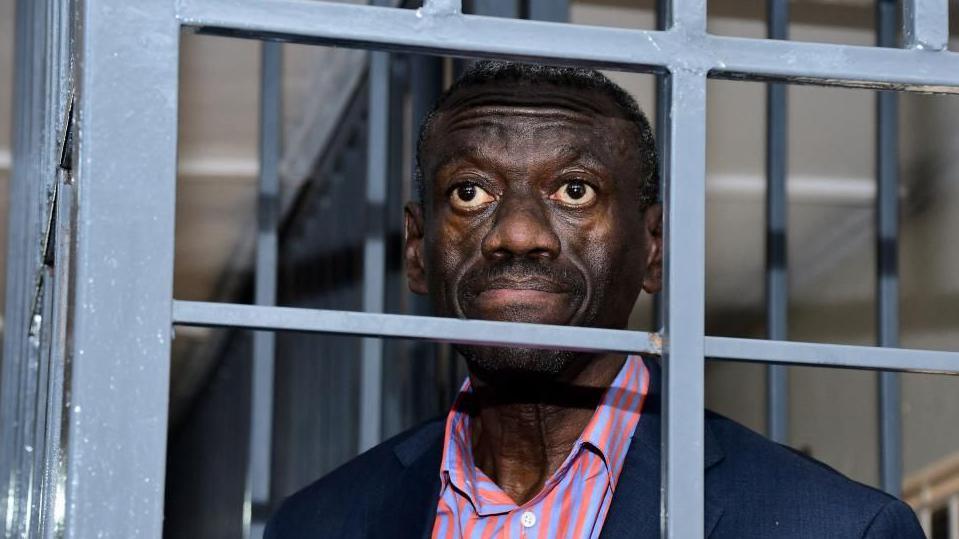The recent detention of Kizza Besigye, a prominent Ugandan opposition leader, during his visit to Kenya has ignited widespread outrage and raised suspicions regarding potential clandestine exchanges of intelligence between Uganda and Kenya. Besigye, known for his steadfast opposition to long-time Ugandan President Yoweri Museveni, was reportedly lured to a meeting under the pretense of engaging with potential supporters. Observers suggest that he was under surveillance from the moment he arrived in Nairobi, culminating in his unwarranted transport back to Uganda without due legal process. While Kenyan authorities profess ignorance about this operation and have initiated an investigation, Ugandan officials assert that Kenya was complicit in this covert extraction, referencing intelligence communications that suggested Besigye was being monitored.
Kizza Besigye has had a turbulent political career, having contested four presidential elections against Museveni, who has held power since 1986. After previously stepping back from political activity, he established a new political party, the People’s Front for Freedom (PFF), earlier this year. His recent trip to Kenya aimed to attend a book launch for Martha Karua, a political ally. However, his absence after leaving his hotel raised alarm bells among his supporters and family, leading his wife, Winnie Byanyima, to declare on social media that he had been “kidnapped.” The taxi driver who was waiting for him sensed something was amiss after 12 hours of waiting without communication from Besigye.
According to reports from allies and his wife, Besigye was last seen at a meeting where he was to discuss the potential support for his new party. Things took a dark turn when armed men, posing as Kenyan police, forcibly arrested him and his associate. The operation was reportedly well-coordinated, involving a vehicle switch at the border, which allowed them to evade normal security protocols. Despite these circumstances, Uganda’s Information Minister indicated that the Ugandan authorities had gathered the requisite intelligence to justify Besigye’s arrest in Kenya, maintaining that it was necessary for regional security despite the lack of extradition procedure.
Upon his return to Uganda, Besigye was tried in a military court rather than a civilian one, which has raised further legal questions about the nature of his detention. Facing multiple charges, including possession of firearms and attempted procurement of weapons from abroad, Besigye challenged the jurisdiction of the military court, arguing that the alleged crimes occurred overseas. However, the court ruled against his objections, remanding him to a maximum-security prison. Many legal experts and human rights advocates underscore the unorthodox nature of his trial, given that Uganda’s constitutional court has ruled against civilian trials in military courts.
The incident has undoubtedly strained diplomatic relations between Kenya and Uganda, putting the Kenyan government in a precarious position amidst strong public scrutiny. Kenyan officials oscillate between distancing themselves from the incident and acknowledging the need for collaborative regional security measures. Questions surrounding the operational protocols that enable such cross-border incidents are prevalent, adding to the complications in Kenya’s international standing and domestic sentiment. The Ugandan government’s claims of intelligence sharing further complicate this narrative, prompting calls for transparency and accountability in handling the matter.
In light of recent events, including other high-profile abductions involving state actors, Besigye’s detention serves as a focal point for broader discussions regarding governance, human rights, and the stability of political opposition within East Africa. Protests have broken out in both Uganda and Kenya in response to perceived governmental overreach and complicity in abduction practices. As discussions continue regarding how best to manage regional relations without compromising human rights, the fate of Kizza Besigye may set a critical precedent for the treatment of political dissent in the region and the diplomatic conduct between neighboring states. The future of the ties between Uganda and Kenya—or potential escalations in tensions—will largely hinge on how leadership in both nations navigates this contentious situation moving forward.

